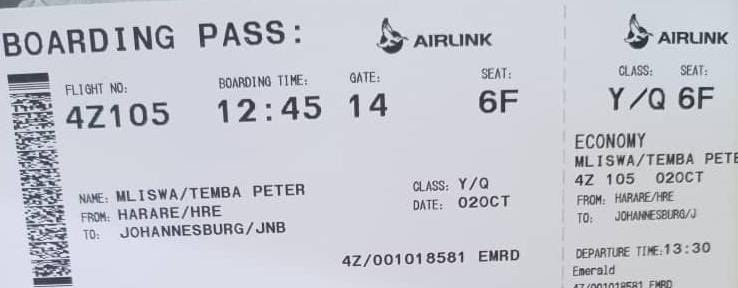New Dawn Mining Corp has scheduled a Special Meeting of its Shareholders for October 31, 2013 to consider and, if thought advisable, approve special resolutions (the "Proposals") authorizing the Company to effect:
· the continuance of the Company to the jurisdiction of the Cayman Islands; and
· the consolidation of the common shares of the Company on the basis of 1 post-consolidation share for each 100,000 common shares currently held.
The record date for the special meeting of shareholders has been set for October 1, 2013, and the meeting date has been scheduled for October 31, 2013. The information circular for the meeting is expected to be mailed to shareholders on or about October 7, 2013.
Background to the Proposals
The Proposals are intended to address current business and operational issues caused by a combination of adverse factors, all of which have been previously reported. The substantially lower gold price, together with steadily increasing payroll and power costs and high domestic royalties, taxes and fees, have exacerbated a number of operational issues, causing significant operating inefficiencies and high operating costs, thus resulting in operating losses and negative cash flows over the past several months. This continuing cash outflow has left each of the Company's operating subsidiaries in a significant working capital deficiency position. In addition, the indigenisation process, which has been continuing without resolution for over two years, has effectively prevented the Company from raising the capital necessary to fund needed investment in its mining properties that would have mitigated the effect of the operational issues described herein.
These factors contributed to the recently announced decision to cease mining operations at one of the Company's material mining properties in Zimbabwe, the Dalny Mine, effective as of August 30, 2013, as a result of operational issues and, in particular, the receipt of a Notice of Disconnection of electrical services to the mine by the Zimbabwe Electricity Supply Authority, due to the Company's inability to pay for electricity utilised on a timely basis. The Company does not expect to re-open the Dalny Mine until operating, liquidity and capital issues have been addressed and resolved.
Combined with limited cash resources in Canada and in Zimbabwe, there is an increasing risk that additional deterioration in the current business and economic environment in Zimbabwe will reduce the Company's strategic options even further, and will jeopardise the continuing existence of the Company. Accordingly, the Board of Directors, after due consideration and consultation, and after exploring various alternatives, has determined to present the Proposals for consideration and approval at a Special Meeting of Shareholders.
Rationales for the Proposals
The Board of Directors of the Company considers it necessary to implement a transition of the Company from a fully reporting Canadian incorporated company listed and trading on the Toronto Stock Exchange to a closely-held unlisted Cayman Islands company that would not be a reporting issuer for Canadian securities purposes. This transition would be accomplished through a corporate continuance and a significant share consolidation, with a cash redemption of fractional shares.
The feasibility of the consolidation will be dependent on whether the Company has sufficient cash resources to redeem all of the fractional shares that would be created under the share consolidation. An independent valuator has been retained to complete a valuation report to assist in determining a fair value of the Company and its outstanding common shares in order to facilitate this process.
Under current market conditions, the Board of Directors and management believe that these actions represent the best possible outcome for minority shareholders, leaving the few remaining shareholders, primarily institutional investors, to assume the significant risks and uncertain future of the Company. However, there can be no assurances that these measures will be successfully implemented or that, if implemented, they will enable the Company to survive and preserve its operations and assets in Zimbabwe.
It is the view of the Board of Directors that the following reasons support this course of action:
The private company environment is more conducive to the successful implementation of a major restructuring that may be necessary to stabilise the Company's operations and attempt to establish a viable capital structure to allow for the preservation and future development of the Company's assets in Zimbabwe.
Certain private sources of capital with long-term investment horizons may be willing to consider significant strategic investments in businesses with the Company's risk/return profile, but such investors generally prefer to make such investments outside of the public markets. The Company is continuing its discussions with these private sources of capital. In contrast, the current capital markets in Canada are short-term oriented and the Company continues to be unable to raise investment capital to allow the Company to pursue its expansion and development plans in Zimbabwe.
Significant improvement to cash flows can be realised through the elimination of the substantial annual cash expenditures related to regulatory and listing compliance, including the filing of interim unaudited and annual audited financial statements, and Canadian corporate governance required to meet the reporting standards applicable to a public company.
Without the requirement to meet Canadian disclosure and compliance standards, and with only a limited number of shareholders (all of which are sophisticated investors), the cost of the Canadian corporate office could be eliminated and the Board of Directors could be reduced in number, with a commensurate reduction in board fees and costs.
The Company is utilising the remainder of its cash resources to fund corporate overhead and compliance obligations, as well as the matters discussed herein, but the Company does not currently anticipate being able to replace such capital when it is exhausted. Accordingly, the Company currently projects that, absent any dramatic change to its operations or capital structure, it will exhaust its existing cash resources in early to mid-2014 and at that time it will not have sufficient operational liquidity to continue to function as a public company.
As the Company continues to attempt to implement its Plan of Indigenisation, which is complex and will likely continue over an extended period of time, it will no longer have to provide forward-looking disclosure to the public markets of the process with estimates of the potential effects, nor will the Company have to provide quantitative information, all of which are subject to significant change and uncertainty in the fluid and volatile Zimbabwe business and economic environment.
Institutional shareholders and management, all of whom are considered long-term investors, hold the majority of the issued and outstanding shares of the Company, leaving a small trading float in the market. In addition, junior gold mining companies are currently out of favour with the market and are likely to remain so for some time to come. The result is that the Company's stock is thinly-traded, making it an illiquid and unattractive investment. Accordingly, the share consolidation with a fractional share cash-out provision may provide the minority shareholders with an attractive opportunity for liquidity in the short-term.
The Company's Zimbabwe operating companies are already held through Cayman Islands incorporated companies, and the transfer to Cayman Islands jurisdiction would provide a cohesive legal and financial infrastructure, flexible enough to deal with the requirements of the Company, and simplify potentially complex taxation issues.
The Canadian tax legislation requires costly, complex and otherwise unnecessary planning to avoid creating tax obligations, although the Company, as a consolidated group, has no assets or operations in Canada (other than its corporate offices), and has not realised the expected benefit of being in such domicile.
Additional Short-Term Considerations
In the short-term, the Company is continuing to:
Attempt to gain approval for and implement a compliant Plan of Indigenisation, but, based on experience to date, progress is uncertain. As previously reported, the evolving policy on indigenisation in Zimbabwe is likely to have an increasingly negative effect on the Company.
Pursue further production improvements and increased operating efficiencies.
Monitor operating results at each mine, with the possibility of closing any mine that is unable to operate on a cash positive basis.
Seek purchasers for its mining assets, especially those that would not be part of a longer term operating plan. However, the Zimbabwe business environment is such that it actively discourages non-indigenous investors and foreign direct investment, and there are few capital resources in the country for acquisitions of this nature at this time.
Seek investors to provide debt and/or equity capital to the Company, although the Zimbabwe business environment is such that it actively discourages non-indigenous investors and foreign direct investment, and there are few capital resources in the country for investments of this nature at this time.
The economic and business climate in Zimbabwe continues to deteriorate and the risks to the Company's assets and operations in Zimbabwe are increasing commensurately. As previously reported, a major underlying factor contributing to the Company's current difficulties has been the more than two year delay in the still incomplete approval process for the Company's proposed Plan of Indigenisation. Approval of the Company's Plan of Indigenisation had been expected to provide the Company with access to sufficient investment capital over a period of time, predominantly from international sources, to fund the development and expansion of more cost efficient mining operations in Zimbabwe. With the heightened uncertainty surrounding the implementation of indigenisation policy in Zimbabwe subsequent to the July 31, 2013 national elections, there is the likelihood of an increasingly negative effect on the Company and thus on its stakeholders.
Recent public statements in Zimbabwe imply there may be an evolving policy on indigenisation focusing on seizing 51% controlling interests in foreign controlled mines, with compensation deemed to be the intrinsic value of the minerals in the ground. The implementation of such an indigenisation policy would further deter foreign direct investment in Zimbabwe and thus make it even more difficult for the Company to raise additional capital through the public markets to fund its development and expansion projects, on which future profitability is dependent.
The Company is currently unable to predict the effect of an inability to conclude or implement a Plan of Indigenisation acceptable to both the Company's stakeholders and the Government of Zimbabwe. However, such failure could result in the termination of the Company's mining licenses in Zimbabwe, the loss of ownership and/or control of the Company's assets and operations in Zimbabwe without monetary compensation, other sanctions against the Company's Zimbabwe operations or subsidiaries, some combination of these actions, or some result currently unknown or unforeseen.
The above discussion and recent previous disclosures provide a detailed up-to-date overview of a deteriorating business and economic environment in Zimbabwe. There is a significant and increasing risk that actions more severe than the steps taken or contemplated so far may be required or forced on the Company. Such actions could include the sale or liquidation of the Company and its assets in a formal or informal process.
- newdawn
 Mliswa flees to South Africa?
Mliswa flees to South Africa?  South African ambassador falls to death from Paris hotel room
South African ambassador falls to death from Paris hotel room  India dumps US Treasury bills
India dumps US Treasury bills  ZSE and VFEX recover after weak 1st half
ZSE and VFEX recover after weak 1st half  Gold edges up as traders await guidance
Gold edges up as traders await guidance  Zimbabwe gold prices move to 118.26 per gram
Zimbabwe gold prices move to 118.26 per gram  Young Investment Professional (YIP) Graduate Programme 2019
Young Investment Professional (YIP) Graduate Programme 2019 








 Young Investment Professional (YIP) Graduate Programme 2019
Young Investment Professional (YIP) Graduate Programme 2019
Editor's Pick